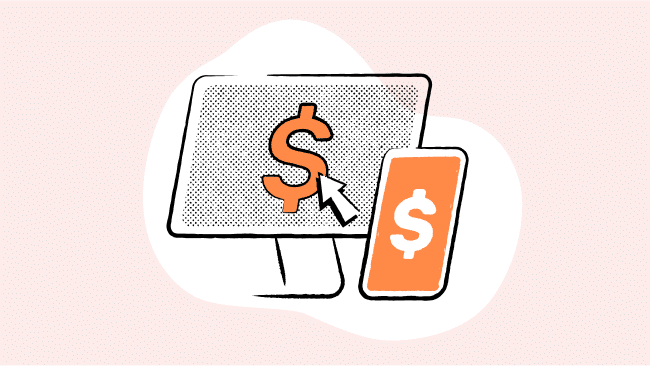Let’s face it: Speaking of Make a Budget That Actually Works, one may get an impression that it is rather uninteresting and stressful.
But please believe me, it is a vital necessity after desires to improve your financial state and meet the money goals.
Surprisingly, many people set goals at the beginning of each year or month to create perfect budgets and abandon them over time because the chosen system did not meet the needs and rhythms of life.
The true art is to come across a feasible budgeting strategy that you are indeed comfortable with and can adhere to in the long run.
If you are so frustrated with the concept of budgeting that still does not appear to work, it is time for new strategies. In this guide, we’re going to disentangle six effective methods for putting together a budget that does what it’s supposed to do – and makes you a wiser and wealthier person.
Actually, you don’t have to go through living nightmares when it comes to making a budget. It does not take a lot to change your financial habits and a little rearrangement, and everything will fall into place. Therefore, it is time to learn the key to creating a perfect working budget!

6 Ways to Make a Budget That Actually Works
1. Set Clear Financial Goals
Okay, even before you start laying down the financial plan, you have to decide on a goal. One of the most important factors of a car is the map – clear goals are similar to the map of your finances – they point you in the direction and tell you that you are on the right track.
Suppose, what is the goal that you have while formulating your budgeting strategy? Is it for a dream vacation, to pay off some loans, or to have a decent rainy day fund?
For example, if it is a holiday that you are visualizing, write down how much you need and by when you plan on going. Or indeed, if your goal is, say, to pay that evil credit card bill, it will show just how much one has to pay each month to come out on top in the time that you have set.
In my opinion, creating goals is very useful because with the help of it your budget not only helps to planned the expenses but also force you to achieve your great dreams.
But break those goals into smaller chunks that you think you can attend to on a daily basis. It’s like people say about eating an elephant, it is indeed possible but it must be done a spoonful at a time.
For instance, if you are planning to develop an emergency fund, you can begin by annually saving a small, comfortable amount and increasing gradually. It is less intimidating and those big goal seem way easier to achieve.
2. Track Your Spending
To begin with, to learn how to manage your money effectively one of the main steps is to know where it is going. Many of us do not fully take into consideration petty expenditures that, in effect, make the overall expenditure rather high. Thus, the first step is to begin tracking all expenses at all – absolutely, including this morning’s coffee.
This may be in any form, with the aid of an app, a spread sheet or a block tackled note for jotting all expenditure. Divide it according to the common expenses such as food, fuel, eat out, and many more. It will assist you to note where you are likely to be spending more and where you could be cutting down.
This means that if, for instance, you realize that you’re spending a lot on eating following your favorite restaurants, then it could be time to hit the kitchen more often. Budgeting your expenses enables you to monitor your activities in spending and alter your budget plan for effective management. Crucially, the more specific you are, the more helpful your budget will be.
3. Create Expense Categories
Here’s where things get a bit more structured: segmentation of expenses is a popular form of categorizing your expenses. This make it easier to monitor the amount spent and ensure that one knows how the money is spent. Come up with sections for areas of can’t do with less, such as shelter, food, transport, and leisure.
Predefine the specific price for each category, referring to the analyzed spending and the desired goal. For instance, if you normally spend $300 on foods you buy, then let that amount be your spending limit for foods. If you continue making requests for that amount and above it, then, it is high time that one looked at the actual budget and came up with a new one.
Keep things flexible. Sometimes you will be ought to pay for something and at other times you will be receiving some money. If you want to make changes to your categories due to a change in income or spending pattern, do so. This is because flexibility avoids your budget to turn into a rigid and structured bigger picture that is in most cases difficult to implement or adhere to.
4. Prioritize Savings
Here’s a common pitfall: regarding savings as something that is done if there is something left over after all the necessary expenditures have been made.
However, it is recommended that saving should be a key agenda when you begin undertaking the activities. By the time you are paid, ensure you save part of the money before you go further and spend the rest.
Find a specific amount of money that you want to save and be consistent with it all the time. For example, if you aim to save $200 a month, set for a direct transfer to the saving account immediately after receiving your salary. This guarantees you are saving money for the future incidents or for some purpose which may come in future.
Try to free up as much money as possible to save ensuring that you cut down on your budget or at least adjust it. If you end up realizing that you have to shave out some more in other parts to get to your savings goal, then do it. Budgeting in savings is crucial in establishing the credit foundation while also guiding individuals towards their saving plans.
5. Review and Adjust Regularly
A budget does not simply set and be left on auto pilot for a specified period of time. That is why it requires constant monitoring and adjustments to make it as efficient as possible.
It is also important to check on your budget plan on a monthly basis, whenever possible, to check your level of adherence and compliance to the said plan and to make any modifications if needed.
Mainly look at the extent to which your actual expenses correspondent with your budget and spending plan. If you are spending more in one area more than you need to, make corrections on your budget or look for ways of reducing on your spending. To adjust for the changes in expenses or income, modify the spreadsheet.
Also, it is recommended to analyze your budget when significant changes have been occurred in your life such as a new job, a new home, or other additional expenditures. This is important because it makes your budget relevant when used in money management or in checking expenditure.
6. Be Realistic and Flexible
Efficient budgeting entails a realistic as well as a flexible budget. Do not set your budget much-tight essentially that it would be very hard to adhere to. Most times, when your budget is very low, it is easy to get discouraged and exit the business.
Finally, be truthful in what you spend most of your money on, and on the things that make you happy.
If eating out or traveling is something that is essential in your life, then one must make sure such expenses are catered for in the budget without compromising the budgeting plan.
Find equilibrium that would allow you to live the life that you want while at the same time ensuring that you set and achieve your goals in saving.
And always bear in mind that it entails a change of budget once prerequisites are set. Life’s events are dynamic and having a flexible disposition makes one cope with the change without undue stress.
Bear in mind, a budget is not a rigid plan, though it contains some do’s and don’ts to help people spend wisely.
See more:

